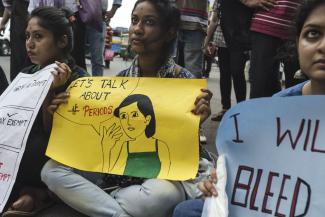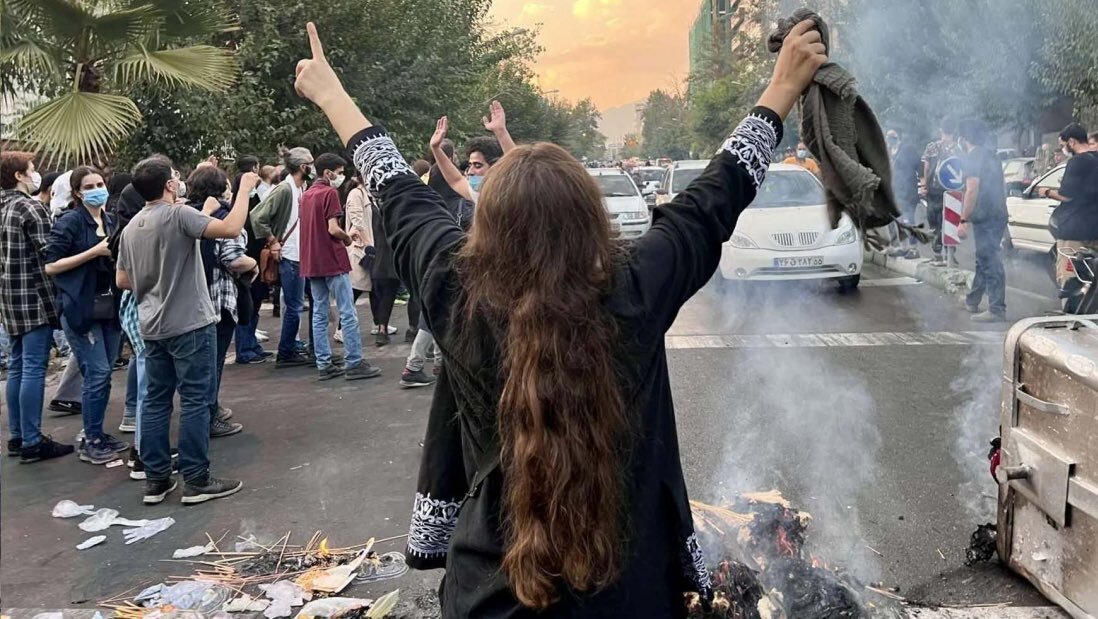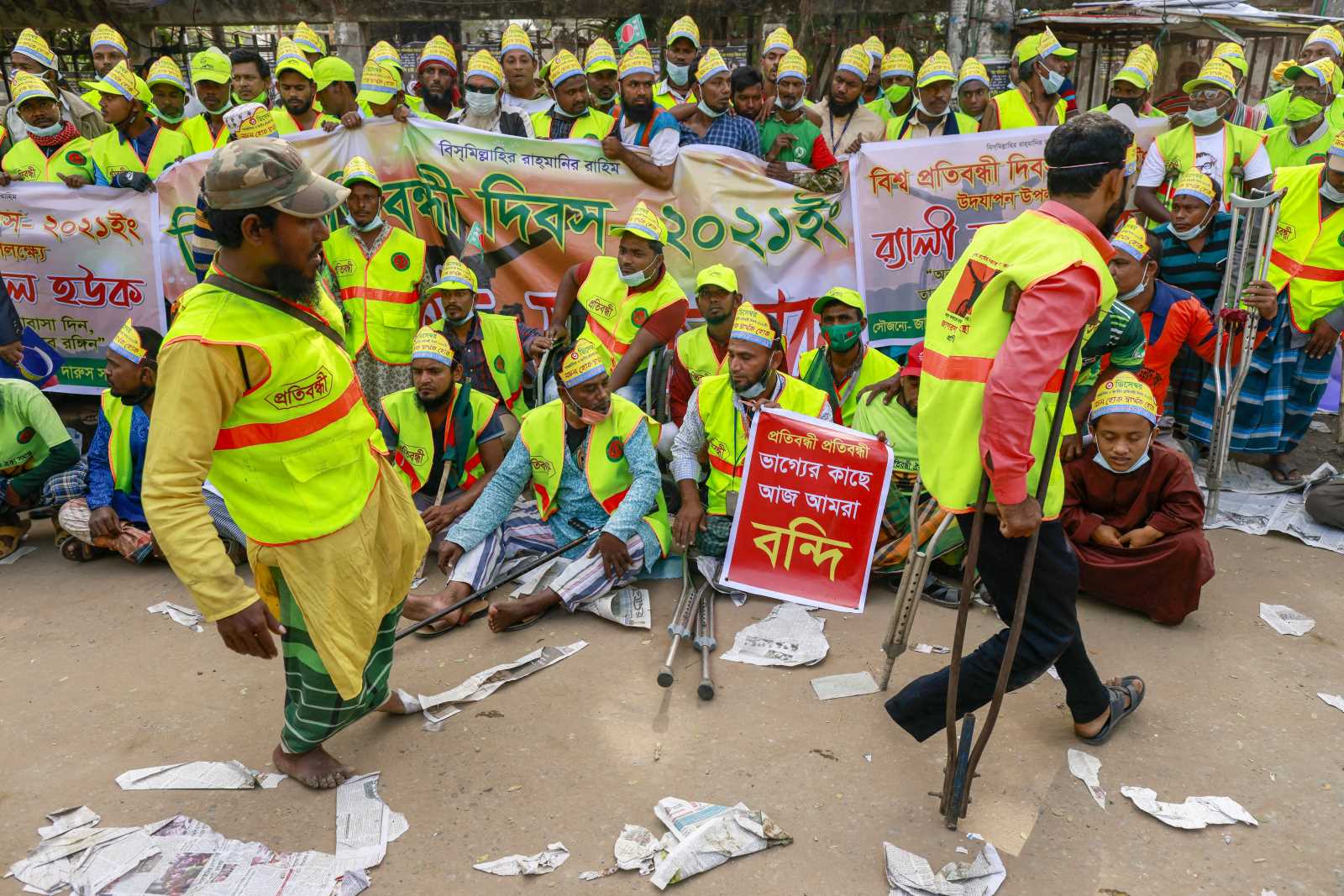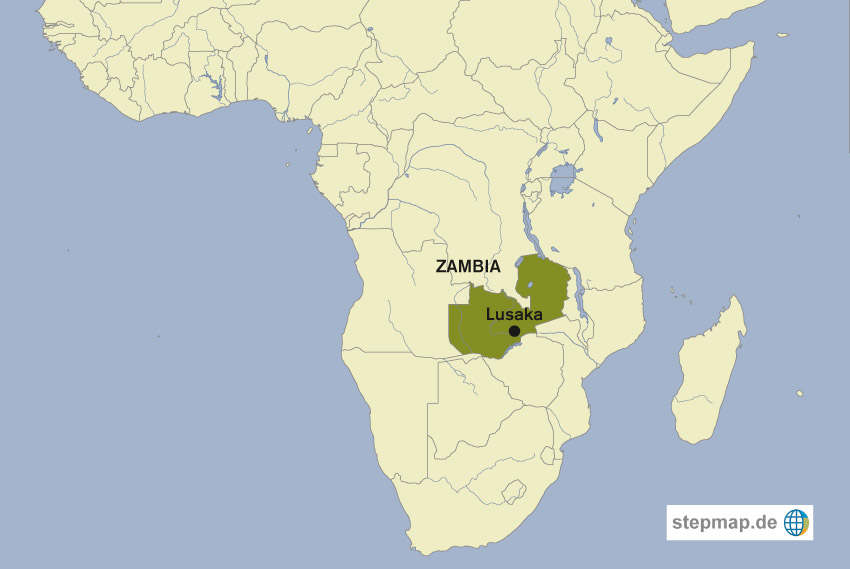Blog
Ending the taboo

“Period. End of Sentence.” is a Netflix Original documentary about menstruation in rural Northern India directed and produced by Iranian-American Rayka Zehtabchi. The short-film is only 25 minutes long and follows the journey of a local group of women in Hapur, India, as they learn to use, produce and sell biodegradable menstrual pads. The film which was funded by The Pad Project, a Californian-based nonprofit organisation, won an Academy Award for best documentary in 2019.
The film succeeds in portraying the stigma girls and women face because of their periods. Women do not go to the temple while they are menstruating because elder generations believe they are dirty and that their prayers are not heard during this time. A large portion of the documentary features girls giggling and adults feeling extremely uncomfortable to discuss menstruation. Some even refuse to speak about it.
In this rural part of India the knowledge about menstruation is quite limited. When asked what the purpose of a period is, one elderly woman responded “only God knows”. Many of the women and girls did not know what pads were, or were not able to afford the ones they had seen in stores. Furthermore, they were uncomfortable buying menstrual products from the men who ran the stores.
The taboo of menstruation is what causes many girls to be confined within their homes, forgoing education and a chance of financial independence. Without proper facilities – including female-only toilets with disposal and washing options – or sanitary materials in schools, girls face the fear of walking around their peers with blood-soaked clothes.
These girls and women risk infection every time they get their period because they are using unsanitary materials. One woman said they use whatever they can find at home, including old cotton clothing which is not highly absorbable. When they are done with these clothes and try to throw them away in the local dump they face further embarrassment as the village dogs then parade them around in their mouths.
One girl says she stopped attending school after middle-school when she got her period because it was difficult to change the sanitary napkins. She had to travel far to change and because the cloth she used did not absorb enough blood, she had to frequently interrupt her studies and draw attention to herself to leave the classroom. She also complained of having to change her cloth in front of young boys and men. It was easier option for her and many other girls to just drop out and stay at home.
Social activist Arunachalam Muruganantham says “menstruation is the biggest taboo in my country”. Muruganantham says that less than ten percent of women in India use sanitary napkins. This is why he invented a low-cost, sanitary pad-making machine and is teaching women to use it across India.
The documentary shows how life in Hapur changed after women were taken through the process of making pads using Muruganantham’s machine. After their introduction, the women produced and marketed the “Fly” pads on their own. The money they earn is more than they did in their previous agriculture-based jobs.
Women gained respect from their families and community because they are working and able to be more active while on their periods. One woman was able to buy a suit for her brother after working at the pad workshop, which she admitted was outside of the norm. “Usually it’s brothers who buy clothes for sisters – now a sister is buying clothes for her brother”. For some women it was their first job to work in the workshop.
Another girl, Sneha, was able to fund her training for the Dehli police with the earnings from the pad machine. At the beginning of the film she complains about the lack of girls freedom and financial independence, especially after marriage. Sneha had dropped out of school herself and wants to join the police force so she doesn’t have to get married. Sneha is an example of how such initiatives are helping women to empower themselves and achieve their dreams outside of the domestic sphere.
By the end of the film, the taboo was notably broken. Women and girls begin to buy from the female salespeople without hiding their faces. Men, initially not allowed in the workshop, are curious to learn about the production. They are allowed to help produce the pads and ask questions, and do so without teasing the women. One man proudly admits he was even inspired to produce his own pad.
Link
Period. End of sentence (trailer):
https://www.netflix.com/title/81074663












